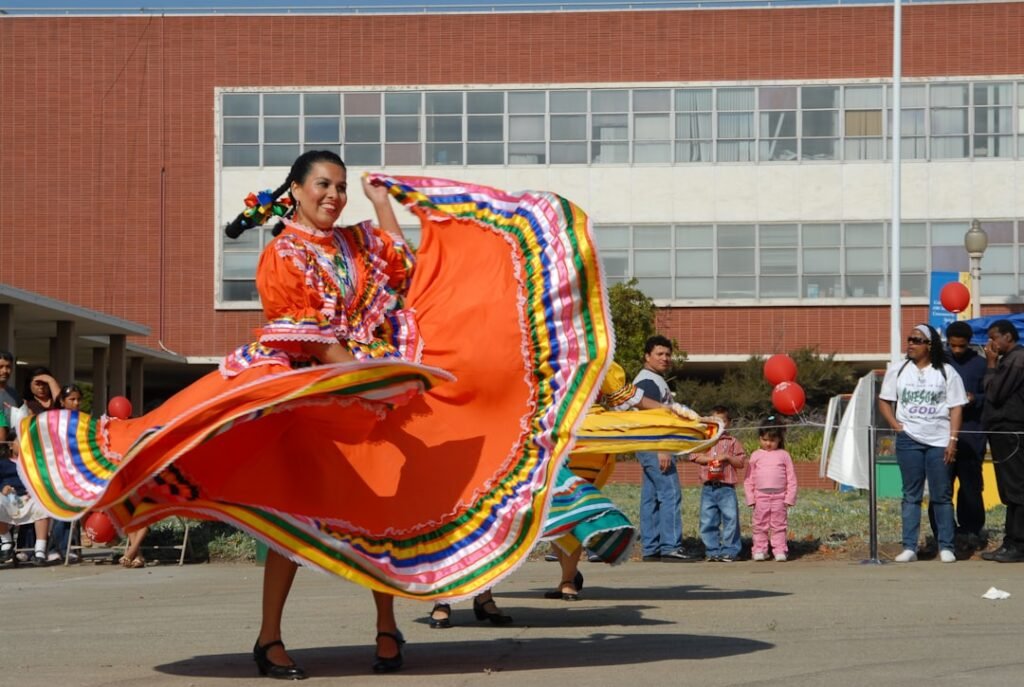Now Reading: Leveling Up: Online Games and Negotiation Skills
-
01
Leveling Up: Online Games and Negotiation Skills
Leveling Up: Online Games and Negotiation Skills

As I delve into the world of online gaming, I find myself immersed in a vibrant universe where strategy, teamwork, and negotiation play pivotal roles. Online games have evolved from simple pastimes into complex ecosystems that require players to engage in various forms of interaction. These interactions often necessitate negotiation skills, whether I am trading resources, forming alliances, or strategizing with teammates.
The digital landscape has become a breeding ground for honing these essential skills, allowing me to navigate not only the virtual realms but also the intricacies of human interaction. The significance of negotiation in online gaming cannot be overstated. It serves as a fundamental mechanism through which players achieve their objectives, resolve conflicts, and foster collaboration.
As I engage with others in these virtual environments, I realize that the ability to negotiate effectively can lead to more successful outcomes and enriched gaming experiences. This article will explore the multifaceted relationship between online games and negotiation skills, shedding light on how these digital platforms can serve as training grounds for real-world interactions.
Key Takeaways
- Online games provide a unique platform for developing and honing negotiation skills.
- Negotiation plays a crucial role in online games, from trading items to forming alliances.
- Online gaming offers opportunities to practice and improve negotiation skills in a dynamic and competitive environment.
- Effective communication is essential in online games for successful negotiation and collaboration.
- Strategies such as compromise and collaboration are key for successful negotiation in online games.
The Role of Negotiation in Online Games
In my experience, negotiation in online games often manifests in various forms, from simple trades to complex diplomatic maneuvers. When I play multiplayer games, I frequently find myself negotiating with other players to secure resources or form alliances that can enhance my chances of success. These negotiations are not merely transactional; they require an understanding of the motivations and goals of others.
I have learned that effective negotiation involves not just asking for what I want but also considering the needs and desires of my counterparts. Moreover, the dynamic nature of online games adds an extra layer of complexity to negotiations. The ever-changing landscape of player interactions means that I must be adaptable and responsive.
For instance, in a competitive game where alliances can shift rapidly, I have to assess the trustworthiness of my partners and be prepared to renegotiate terms as circumstances evolve. This fluidity has taught me the importance of being both assertive and flexible in my approach to negotiation.
Developing Negotiation Skills through Online Gaming

As I engage in various online games, I have come to appreciate how they serve as a platform for developing negotiation skills. Each gaming session presents unique challenges that require me to think critically and strategically about how to approach negotiations. For example, when playing a strategy game, I often find myself negotiating troop movements or resource allocations with teammates.
These scenarios compel me to articulate my needs clearly while also listening to the perspectives of others. Through repeated interactions in these virtual environments, I have noticed a marked improvement in my ability to negotiate effectively. The practice of negotiating in a low-stakes setting allows me to experiment with different tactics and approaches without the fear of real-world consequences.
I can test the waters by making bold proposals or taking a more conciliatory stance, all while observing the reactions of my fellow players. This iterative process has been invaluable in refining my negotiation style and enhancing my overall communication skills.
Understanding the Importance of Communication in Online Games
Communication is the backbone of successful negotiation in online games. As I navigate these digital landscapes, I have learned that clear and effective communication can make or break a deal. Whether I am using voice chat, text messages, or in-game signals, the way I convey my intentions significantly impacts the outcome of negotiations.
I have found that being articulate and concise helps me avoid misunderstandings and fosters a more collaborative atmosphere. Additionally, non-verbal communication plays a crucial role in online gaming interactions. The use of emojis, gestures, or even character movements can convey emotions and intentions that words alone may not capture.
I have often relied on these non-verbal cues to gauge the reactions of other players during negotiations. By paying attention to their responses, I can adjust my approach accordingly, ensuring that my proposals resonate with their interests and concerns.
Strategies for Negotiating in Online Games
Over time, I have developed several strategies that enhance my negotiation skills in online games. One key approach is to establish rapport with other players early on. By building a positive relationship from the outset, I create an environment where open communication is encouraged.
This rapport allows me to negotiate more effectively because players are more likely to trust me and consider my proposals seriously. Another strategy I employ is active listening. During negotiations, I make a conscious effort to listen attentively to what others are saying.
This not only helps me understand their needs but also demonstrates respect for their perspectives. By acknowledging their concerns and incorporating them into my proposals, I can create win-win scenarios that benefit all parties involved. This collaborative mindset has proven invaluable in fostering long-term partnerships within gaming communities.
Building Trust and Relationships in Online Gaming Communities

Trust is a cornerstone of successful negotiation in online gaming communities. As I engage with other players over time, I recognize that building trust requires consistent behavior and reliability. When I make commitments during negotiations, I strive to follow through on them.
This reliability fosters a sense of security among my peers, making them more willing to engage in future negotiations with me. Moreover, investing time in relationship-building has its rewards. By participating in community events or collaborating on projects outside of competitive gameplay, I strengthen my connections with other players.
These relationships often translate into smoother negotiations because we have established a foundation of mutual respect and understanding. In essence, trust acts as a lubricant for negotiations, making it easier to navigate complex interactions.
Dealing with Conflict and Disagreements in Online Games
Conflict is an inevitable part of any competitive environment, including online gaming. When disagreements arise during negotiations, I have learned that addressing them constructively is crucial for maintaining positive relationships. Instead of resorting to hostility or defensiveness, I strive to approach conflicts with an open mind and a willingness to find common ground.
One effective technique I employ is reframing the disagreement as an opportunity for collaboration rather than confrontation. By focusing on shared goals and interests, I can steer the conversation toward finding solutions that satisfy both parties. This approach not only resolves conflicts but also reinforces trust and strengthens relationships within the gaming community.
Learning to Compromise and Collaborate in Online Gaming
Compromise is an essential skill that I have honed through my experiences in online gaming. In many instances, achieving my objectives requires finding middle ground with other players. When negotiating terms or resource exchanges, I have learned that being flexible and open to alternative solutions can lead to more favorable outcomes for everyone involved.
Collaboration is another vital aspect of successful negotiation in online games. By working together with others toward a common goal, we can pool our resources and skills for greater success. I have found that fostering a collaborative spirit not only enhances the gaming experience but also strengthens the bonds between players.
This sense of camaraderie often leads to more fruitful negotiations as we collectively strive for victory.
Transferring Negotiation Skills from Online Games to Real Life
The negotiation skills I have developed through online gaming extend far beyond the virtual realm; they have proven invaluable in real-life situations as well. The ability to communicate effectively, build trust, and navigate conflicts has enhanced my interactions in various contexts—be it at work, school, or social settings. The lessons learned from negotiating with fellow gamers have equipped me with tools that are applicable in everyday life.
For instance, when faced with a challenging situation at work that requires collaboration with colleagues, I draw upon my experiences from online gaming to foster open communication and build rapport. The strategies I’ve practiced—such as active listening and compromise—allow me to navigate workplace negotiations with confidence and poise.
The Impact of Online Gaming on Decision Making and Problem Solving
Engaging in online games has significantly influenced my decision-making abilities and problem-solving skills. The fast-paced nature of many games requires me to make quick decisions based on limited information while considering the potential consequences of my actions. This experience has sharpened my analytical thinking and taught me how to weigh options effectively.
Moreover, online gaming often presents complex challenges that require creative problem-solving strategies. Whether it’s devising a new tactic during a raid or finding innovative ways to overcome obstacles within the game, I’ve learned to think outside the box and approach problems from different angles. These skills have translated into improved decision-making abilities in real-life scenarios where critical thinking is essential.
The Future of Negotiation Skills in Online Gaming
As I reflect on my journey through the world of online gaming, it becomes clear that negotiation skills will continue to play a vital role in shaping player interactions and experiences. The evolution of online games will likely introduce new challenges that require even more sophisticated negotiation techniques as communities grow and diversify. Looking ahead, I am excited about the potential for online gaming to serve as a training ground for future generations seeking to develop their negotiation skills.
As technology advances and virtual environments become increasingly immersive, players will have even more opportunities to practice these essential skills in dynamic settings. Ultimately, the lessons learned from negotiating within online games will continue to resonate beyond the screen, enriching our interactions in both virtual and real-world contexts alike.
Online games have become a popular platform for developing negotiation skills, as players often have to work together to achieve common goals or compete against each other. In a related article on Gamers.co, the discussion revolves around whether gaming is becoming more mainstream in society. As more people engage in online gaming, the opportunity to hone negotiation skills in a virtual environment becomes increasingly valuable. This trend is further supported by the rise of mobile games with controller support, as mentioned in another article on Gamers.co. The integration of negotiation tactics in gaming experiences highlights the educational potential of online games beyond entertainment.



























